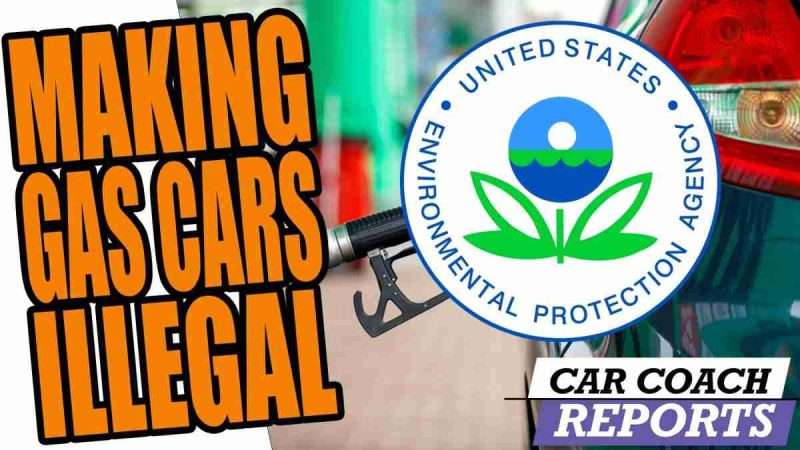Car Dealers Intensify Opposition To Electric Vehicle Requirements

Table of Contents
Financial Concerns and Investment Burden
The transition to an EV-centric market presents significant financial hurdles for car dealerships. The high upfront costs associated with adapting to this new reality are a major source of concern.
High Upfront Costs of EV Infrastructure
Dealerships need to invest heavily in new infrastructure to service and sell electric vehicles effectively. This includes substantial expenditures in several key areas:
- Costs of installing fast chargers: Installing fast-charging stations requires significant capital investment, depending on the number of chargers needed and the type of charging technology used. This is particularly challenging for smaller dealerships with limited resources.
- Specialized tools for battery maintenance: Maintaining EV batteries requires specialized tools and training that are different from those used for gasoline-powered vehicles. This represents a considerable added expense.
- Employee retraining programs: Sales staff and technicians need specialized training to understand and sell EVs effectively. This requires investing in comprehensive retraining programs.
The significant capital investment required to upgrade facilities and train staff puts a strain on dealership profitability, especially for smaller businesses. The availability and accessibility of government incentives (or the lack thereof) further exacerbates the situation. Many dealers feel that the current support isn't sufficient to offset these massive upfront costs.
Reduced Profit Margins on EVs
Dealers are also concerned about potentially lower profit margins on EVs compared to gasoline-powered vehicles. This is due to several factors:
- Lower maintenance needs of EVs: Electric vehicles, having fewer moving parts, generally require less frequent and less extensive maintenance than internal combustion engine (ICE) vehicles. This directly impacts the service revenue stream dealerships rely upon.
- Competition from direct-to-consumer EV brands: The emergence of direct-to-consumer EV brands, cutting out the traditional dealership model, adds further competitive pressure, potentially squeezing profit margins.
The combined effect of reduced service revenue and increased competition creates a challenging financial environment for dealers trying to embrace the EV transition.
Challenges in Sales and Consumer Education
Beyond the financial concerns, car dealerships also face significant challenges related to sales and consumer education in the context of EV adoption.
Shifting Sales Strategies
Selling EVs requires a different approach than selling traditional vehicles. Dealerships need to adapt their sales strategies to address specific consumer concerns and misconceptions.
- Need for educating customers on charging infrastructure: Many potential EV buyers are concerned about the availability and accessibility of charging stations. Dealers need to educate customers about existing infrastructure and future expansion plans.
- Addressing battery range anxiety: Range anxiety, the fear of running out of battery charge, is a significant barrier to EV adoption. Dealers need to effectively communicate the range capabilities of EVs and allay these concerns.
- Educating customers on government incentives: Understanding and utilizing available government incentives (tax credits, rebates, etc.) is crucial for both consumers and dealers. Dealers need to be well-versed in these programs to assist their customers.
Effective sales require specialized training for dealership staff to address these customer concerns and overcome misconceptions surrounding EVs. Marketing strategies must also be adapted to highlight the benefits of EVs while addressing potential drawbacks.
Lack of Consumer Demand in Certain Markets
The demand for EVs isn't uniform across all geographical areas. This uneven adoption presents unique challenges for dealerships in certain regions.
- Geographical variations in EV adoption rates: EV adoption is higher in urban areas with established charging infrastructure compared to rural areas where charging options are limited.
- Impact on inventory management: Dealerships in areas with low EV demand may struggle with inventory management, facing challenges in selling EVs and potentially incurring storage costs.
- Challenges of selling EVs in rural areas: In rural areas, the limited availability of charging infrastructure and the longer distances between charging stations make EV ownership less appealing to potential customers.
This uneven market creates logistical and financial difficulties for dealers, impacting their ability to profitably sell and service electric vehicles.
Concerns about Government Regulations and Mandates
Government regulations and mandates aimed at accelerating EV adoption are another significant source of concern for car dealerships.
Unrealistic Sales Quotas
Dealers argue that government-imposed EV sales quotas are often unrealistic and fail to account for market readiness.
- Issues with meeting mandated targets: Meeting ambitious EV sales quotas can be extremely challenging, especially in regions with lower EV demand or limited EV supply.
- Potential penalties for non-compliance: Failure to meet these quotas can result in significant financial penalties for dealerships, further impacting their profitability.
- Lack of sufficient EV supply: The limited availability of EVs from manufacturers can also hinder dealers' ability to meet mandated targets.
These quotas can disproportionately affect smaller dealerships with limited resources and market reach.
Lack of Clarity and Consistency in Regulations
The lack of clear and consistent regulations across different jurisdictions also adds to the uncertainty faced by car dealerships.
- Varying regulations across states/countries: Different states or countries have varying regulations regarding EV incentives, emissions standards, and infrastructure requirements, making it difficult for dealers to operate efficiently across multiple jurisdictions.
- Difficulties in complying with diverse standards: Navigating these diverse regulations and standards is complex and time-consuming, requiring significant administrative and legal resources.
- Lack of a unified national strategy: The absence of a unified national strategy regarding EV adoption can create uncertainty and hinder long-term planning for dealerships.
This regulatory inconsistency creates hurdles for dealers in making informed investment decisions and adapting their business models effectively.
Conclusion
The intensifying opposition from car dealers to electric vehicle requirements underscores the significant challenges in transitioning to a fully electric automotive landscape. Financial concerns, the need for adjustments to sales strategies, and concerns about government regulations are key factors driving this resistance. Addressing these concerns through meaningful collaboration and transparent communication is crucial to ensure a successful and equitable transition for all stakeholders.
Call to Action: Understanding the complexities of electric vehicle requirements and the concerns of car dealers is essential for policymakers and industry leaders alike. Open dialogue and finding solutions that address both environmental goals and economic realities are vital for a smooth and effective transition to a future powered by electric vehicles. Further research into the impacts of EV mandates on the automotive industry is needed to effectively navigate these challenges and create a sustainable and prosperous future for all involved.

Featured Posts
-
 Anchor Brewing Companys Closure A Legacy In San Franciscos Brewing History
Apr 24, 2025
Anchor Brewing Companys Closure A Legacy In San Franciscos Brewing History
Apr 24, 2025 -
 Blockchain Security Enhanced Chainalysis Acquisition Of Alterya
Apr 24, 2025
Blockchain Security Enhanced Chainalysis Acquisition Of Alterya
Apr 24, 2025 -
 Update John Travolta Comments On Shared Photo From Luxurious Family Home
Apr 24, 2025
Update John Travolta Comments On Shared Photo From Luxurious Family Home
Apr 24, 2025 -
 The Zuckerberg Trump Dynamic Implications For Social Media And Beyond
Apr 24, 2025
The Zuckerberg Trump Dynamic Implications For Social Media And Beyond
Apr 24, 2025 -
 Breast Cancer Awareness The Story Of Tina Knowles And Missed Mammograms
Apr 24, 2025
Breast Cancer Awareness The Story Of Tina Knowles And Missed Mammograms
Apr 24, 2025
